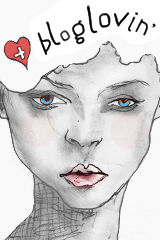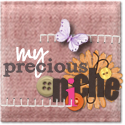I've posted before that I'm getting worried with my baby's banging his head when he craves for attention. Luckily, Mich and Ann response to it and told me that its a normal process in a developing toddler. I was relieved! Thanks again sisters!
Now, I want to share this article for those who has the same "worry freak mind" like mine. :)
Why does my toddler purposely bang his head?
Head banging is surprisingly common. Up to 20 percent of babies and toddlers bang their head on purpose, although boys are three times more likely to do it than girls. Head banging often starts in the second half of the first year and peaks between 18 and 24 months of age. Your child's head banging habit may last for several months, or even years, though most children outgrow it by age 3.Possible reasons your toddler may bang his head:
• Self-comfort. As strange as it may sound, most toddlers who indulge in this behavior do it to relax. They bang their head rhythmically as they're falling asleep, when they wake up in the middle of the night, or even while they're sleeping. Some rock on all fours as well. Developmental experts believe that the rhythmic motion, like rocking in a chair, may help your toddler soothe himself.
• Pain relief. Your toddler may also bang his head if he's in pain — from teething or an ear infection, for example. Head banging seems to help kids feel better, perhaps by distracting them from the discomfort in their mouth or ear.
• Frustration. If your toddler bangs his head during temper tantrums, he's probably trying to vent some strong emotions. He hasn't yet learned to express his feelings adequately through words, so he's using physical actions. And again, he may be comforting himself during this very stressful event.
• A need for attention. Ongoing head banging may also be a way for your toddler to get attention. Understandably, you may tend to become solicitous when you see your child doing something that appears self-destructive. And since he likes it when you fuss over his behavior, he may continue the head banging in order to get the attention he wants.
• A developmental problem. Head banging can be associated with autism and other developmental disorders — but in most of these cases, it's just one of many behavioral red flags. Rarely does head banging alone signal a serious problem.
What can I do about it?
Give your toddler your attention — but not when he's banging.
Make sure your child gets plenty of positive attention from you when he's not banging his head. If he still bangs his head to get your attention, though, try not to make a big deal about it, or you may reinforce the behavior. Even if you can't completely disregard the behavior, don't scold or punish him for it. He's too young to understand the situation, and your disapproval may only make matters worse.
Protect your child from injury.
Check all the screws and bolts on your toddler's crib once a month or more to make sure the rocking isn't loosening anything. You can also put rubber casters on the crib legs and hang a soft fabric or quilt between the crib and the wall to reduce noise and to minimize wear and tear on the walls and floor.
Don't put pillows or blankets in his crib to soften his surroundings, because these are a suffocation hazard. If you want to use bumpers on your toddler's crib to soften his blows, make sure that they're thin, firm (not puffy), and securely tied to the crib railings, so your toddler can't get his head between the bumper and the railing.
Try not to worry.
Your toddler may get a bruise or two, but don't worry — head banging is usually a "self-regulating" behavior. This means your child is unlikely to hit his head hard enough to seriously injure himself. He knows his threshold for pain and will pull back on the throttle a bit if the banging hurts.
Help foster your child's love of rhythm in other ways.
Your child clearly likes a good steady beat, so help him find other outlets for his love of rhythm. Experts often recommend dancing, marching, and drumming or clapping to music together. You might also try putting a metronome in your child's room to give him the comfort of a steady rhythm. Make sure he gets lots of physical exercise during the day, too, to help him burn off some of the nervous energy that may feed his head banging.
Start a soothing bedtime routine.
If your child is banging his head as a way of "coming down" from his busy day, try setting up a relaxing routine. A warm bath, a calm rock on your lap, and a quiet story or song may help. You may want to spend a few minutes before bed rubbing his back or stroking his forehead. Soft music in his bedroom can be soothing, too.
Consult a doctor if your child's behavior becomes worrisome.
If your child bangs his head a lot during the day or continues to bang his head even though he's hurting himself, you may have cause for concern. Though it's uncommon, head banging can be associated with autism and other developmental disorders, which sometimes become apparent during the toddler and preschool years.
Autistic children generally don't relate well to people. They often aren't interested in physical contact with their parents and seem to look through people rather than at them. If you notice that your child is losing physical abilities, language, or other skills he's acquired; if he's becoming increasingly withdrawn; or if he's consistently delayed in achieving common developmental milestones, check with his doctor.















3 comments:
sis youre not the only one who had this kind of problem my son loves to bang his head on the floor whenever he gets upset or throwing temper tantrums.
nothing to worry talga sis! haaay, we're gearing towards terrible two! goodluck to us! heehehe!
My son is 17 months and has been banging his head on everything, tile floor, carpet, crib rales, cement, everything. He is not talking yet and when he gets mad he has seriourly bad temper tantrums with head banging all the time. I hope this wears off.
Post a Comment